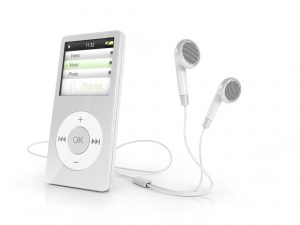
Empath Health Palliative Arts Clinician Julie Martin
Music can take us to another place, back to the sounds and times of our lives. The songs of the past can even resonate with people living with Alzheimer’s or other dementia.
At Empath Health, including Suncoast Hospice, it’s always our goal to be well in tune with everyone we care for in order to provide the best possible comfort and safety. Our Suncoast Hospice home health aides give an especially personal touch caring for our patients’ bathing, dressing and other essential needs, which may become challenging if patients have dementia. One new way that one care team’s aides are enhancing the comfort and environment for their patients with dementia is the use of recorded music during visits at assisted living facilities.
Julie Martin, Empath Health palliative arts clinician and board-certified music therapist, facilitates training for the aides through the Music in Caregiving pilot program as part of a grant awarded last year. The aides can create and play specifically-arranged playlists on Mp3 players based on the musical preferences and moods of patients, helping to increase enjoyment and comfort during care. The many positive effects of music may include stimulating memories and senses, changing energy levels, decreasing distress, developing self-awareness and improving connections with others.
“I created a specialized protocol using the iso-principle of music therapy. We match where the patient is with the music and then move in the direction the patient needs to go. If a patient is agitated or unable to focus, the aide would use a playlist in which the songs happen at a faster pace and then gradually move a little slower. If a patient is lethargic, the aide would use a playlist in which the songs start off slower and then pick up speed and intensity. The benefits of music are to help refocus attention to increase awareness and alertness. We try to create a cognitive arousal of the patient so he or she can participate safely in the care experience,” Martin explained.
 The program continues to develop and grow, says Liz Whitehurst, Empath Health quality improvement advocate overseeing the program with Martin.
The program continues to develop and grow, says Liz Whitehurst, Empath Health quality improvement advocate overseeing the program with Martin.
Whitehurst shared, “We are in three facilities and getting ready to expand and go into three more. We have been busy building the program, including creating informational materials and journals, which patients’ family members or facilities’ staff may use to keep notes about how the patients are responding to the music. Our hope is that the music can reduce agitation and injuries with the patients.”
Some positive patient outcomes have been reported.
“I think the aides are going to do an outstanding job using the protocol. They are so excited. I recently got to meet with them to see how things are going and they started telling stories about how their patients have responded to this program and music in general. What we are finding is it does help patients socially when interacting with our aides. And it gives patients more choices in their care. We are attempting to collect data. We want to see what happens,” Martin said.
 Find Support
Find Support
Caring for a loved one with Alzheimer’s?
Give us a call at (727) 467-7423 or visit us online to find out if it might be a good time to start hospice care for your loved one.
Join our Alzheimer’s caregiver support groups to meet other caregivers and receive encouragement and guidance on the second Tuesday of the month from 9:30 a.m. to 10:30 a.m. at Largo Public Library. For information and registration, contact Maria Pepe at (727) 479-7071 or MariaPepe@EmpathHealth.org, or Tracy Christner at (727) 536-7364 or TracyChristner@EmpathHealth.org.

Recent Comments